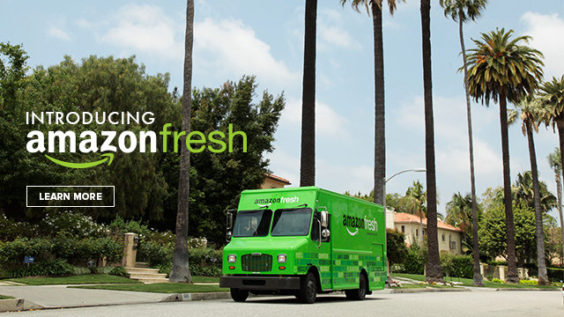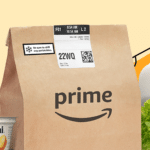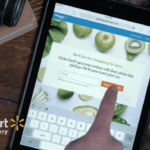
Assumptions can be wrong, of course – but let’s assume for a moment that you will not be buying your groceries from Amazon.com. The latest iteration of the internet giant’s “AmazonFresh” grocery delivery service charges you 300 bucks just for the privilege of buying your groceries from Amazon – and you still have to pay for the groceries, and possible delivery charges on top of that. So if you’re a coupon user and bargain hunter, chances are pretty good that won’t appeal to you.
But even if you never become a customer, there are still some good reasons that Amazon getting into the grocery delivery business will affect you – for better or worse. Here are a few:
AmazonFresh is Expensive
In Seattle, where Amazon has long been testing its grocery delivery service, the only charges are for the groceries themselves, and delivery is free if you spend more than $100. In Los Angeles, where Amazon finally announced the long-rumored expansion of the service this week, you have to buy into the program. After a 90-day trial, customers will have to purchase a $299 “Prime Fresh” membership in order to be able to order groceries from Amazon at all.
Combine that with the fact that you can’t use manufacturer’s coupons for AmazonFresh, there aren’t weekly sales like there are in the supermarket, and it becomes clear that bargain hunters are not exactly the target audience. It’s not clear whether that’s the model that AmazonFresh will use in the rumored dozens of other cities where it plans to expand next. But either way, getting groceries delivered to your door isn’t cheap.
So how would any of this affect you, the coupon-using, savvy-saving grocery shopper that you are? Well, the very people who think nothing of price and buy whatever they need whenever they want, are the ones who subsidize lower grocery prices for the rest of us. Grocery stores’ high-low pricing works because, for every shopper that shops the low sale prices, there are those who will pay full price the rest of the time. And if these non-price-conscious customers decide to buy everything from Amazon instead of from the grocery store, there will be fewer suckers shoppers for grocery stores to make their money from. That could mean fewer sales and higher prices overall.
Then again, if the only customers left are the bargain hunting types, grocery stores may compete even harder to get your attention and your business. More sales, more coupon-friendly policies – it could be a bargain-hunter’s dream! Let those rich people pay to have their groceries delivered, we’ll all enjoy the great deals without them.
Of course, prices can only go so low. So this “bargain-hunter’s dream” may remain just that – a dream.
AmazonFresh Will Lose Money
Many analysts say Amazon probably will not make a profit on selling and delivering groceries – and that the company simply doesn’t care. It can afford to sell groceries as a loss leader, to get customers in the habit of buying everything, including bigger-ticket items, from Amazon.
That could be bad news for grocery stores who feel pressured to compete by setting up their own delivery services. The more money and resources they pour into copycat programs, the less money and resources they have to invest in prices and in-store customer service. Trying to compete with a company that doesn’t care if its grocery business is profitable, is not a great move for a supermarket that needs to make a profit from groceries.
On the flip side, Amazon’s move could relieve the pressure on grocery stores, which have had mixed feelings about offering grocery delivery. If Amazon can’t even make it profitable, who can? So why bother trying? Amazon could effectively encourage grocery stores to save their money, skip the headaches and better serve their customers by staying out of the delivery business altogether. Alternatively, grocery stores would be free to consider other, less expensive programs like online ordering and drive-through pickup, giving its customers options that Amazon cannot.
Amazon Puts Its Competitors Out of Business
Look what Amazon did to bookstores and, with the help of iTunes and the like, record stores as well. Could Amazon’s entry into the grocery delivery business put your neighborhood supermarket out of business too? Making a profit from selling groceries is hard enough as it is. With Amazon bigfooting its way into the business, it could become the straw that broke the camel’s back. You may not be buying groceries from Amazon now, but if your grocery store shuts its doors, you may not have a choice in the future.
But there are plenty of reasons that’s completely unlikely. Amazon has to build giant warehouses full of food, in order to serve new areas. So its AmazonFresh service is likely to remain concentrated in big cities. There’s hardly a danger that grocery stores outside the big cities will shut down, if Amazon doesn’t even deliver there.
Besides, even in those big cities, the majority of shoppers are still likely to want to select their groceries themselves. Food – especially perishable food like meat and produce – is just not the same as books and music. Having a stranger select and deliver your fresh food is something many shoppers say they’ll just never go for (read: “Will We Ever Really Order All Our Groceries Online?”). Good old-fashioned grocery stores could ultimately seem more appealing than ever.
So while retail analysts wring their hands on behalf of the grocery industry, fretting that Amazon will destroy everyone, there’s a pretty good chance that it won’t. Competition, they say, is always good for the customer. So while things are indeed changing for grocery shoppers, they just might end up changing for the better.











Pingback: Event recap: Panel on Online Grocery Delivery – Good Eggs, LolaBee’s Harvest, Plated, Webvan, and Free Spirit Farm | Edible Startups
Why wouldn’t Amazon support coupons?
http://fresh.amazon.com/Coupons , they have coupons now